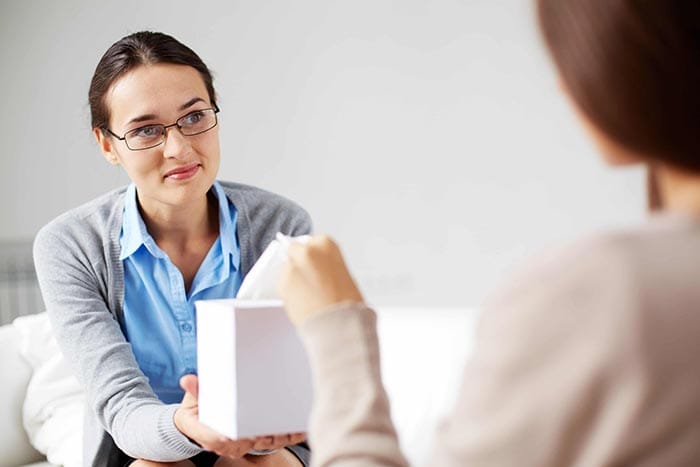A 4-Part Series throughout Mental Health Awareness Month
Part 4: The Relationships Between Mental Health and Social Health
“As much as we complain about other people, there is nothing worse for mental health than a social desert.”
― Charles Montgomery
As we explore deeper into the pillars of mental health, it is essential to understand that mental health is tightly connected and dependent on our social interactions. As Mental Health Awareness Month comes to an end, we must keep the momentum healthy throughout the rest of the year, and our mental health should be a priority every day of the week, regardless of the month. Mental health encompasses our physical health, emotional health, cognitive health, and social health. Over the last few weeks, we discussed the relationship between:
Emotional health and mental health
Physical health and mental health
Cognitive health and mental health
This week we will discuss the critical interlacing between our mental health and social health. Social health, commonly referred as “social connections”, is a pivotal part of how we function in society.
We thrive on social connections
Humans are social creatures. We thrive on physical touch, conversations, relationships, trust, love, and shared interests. Our social connections usually consist of friendships, romantic relationships, family bonds, and work colleagues. These essential pillars of social relationships are linked to increased feelings of belonging, purpose, increased levels of happiness, reduced stress levels, increased self-worth, and confidence.
Loneliness increases depression
On the other hand, we tend to become depressed and anxious when we are isolated or are surrounded by individuals who tear us down. COVID-19 is a perfect example of how isolation can be incredibly stressful for many individuals and can lead to feelings of depression and anxiety.
Studies have also shown that loneliness has consequences associated with our cognitive health: it’s been linked to problems with attention, executive function, and is even the risk for dementia. Our cognitive health is an essential pillar of our mental health as a decline in our thought processing, and memory often goes hand in hand with depression.
Are the social media connections good enough?
As our world has morphed into instant connections and quick gratification from social media and online dating, it seems deep connections with family members and friends are becoming more challenging to come by. It seems so much more convenient to wish a friend “Happy Birthday” on Facebook rather than pick up the phone and have a conversation. Although social media can bring people together in many other ways, it has also taken away that intimate in-person connection that many of us have forgotten. A study has shown that loneliness and the lack of deep connections are two of the leading reasons why individuals seek therapy.
Dysfunctional relationships can harm our mental health
Dysfunctional relationships, whether they are due to abuse, abandonment, narcissism, chaos, or codependency, can result in depression, anxiety, eating disorders, and even suicidal thoughts. It is common for individuals to enter one dysfunctional relationship after another because it feels familiar, and our brains are designed to think that familiar is good. When dysfunctional relationships begin to go south, it is natural to feel hurt and upset as you are not enjoying the relationship but still are doing the unhealthy dance with them. What starts as a little anger and sadness can quickly spiral into real depression and anxiety. When we feel helpless in our situation when we feel taken advantage of when we feel bullied, and when we feel our self-esteem has plummeted, our moods can spiral downward, leading to suicidal thoughts and tendencies.
Introverts vs. extroverts
It is quite common to hear phrases similar to “I am an introvert; I enjoy being alone and do not need to be around people to be happy”.
Although introverts do “fill their cup” and restore their energy by being alone, they still thrive on social connections. An introvert may be more comfortable around smaller crowds and may feel most confident with one on one encounters. However, introverts still need social interactions to flourish.
Extroverts re-energize and “fill their cup” by being around people. They usually thrive on group interactions and prefer being around people to being alone. The main difference between introverts and extroverts is that one type of personality type uses being alone to re-energize. In contrast, the other type uses being around people to re-energize.
This global pandemic has left a lasting impression on extroverts. Many of these individuals are unable to socialize with their friends and family, which leaves them feeling alone and detached from the world.
“A deep sense of love and belonging is an irresistible need of all people. We are biologically, cognitively, physically, and spiritually wired to love, to be loved, and to belong. When those needs are not met, we don’t function as we were meant to. We break. We fall apart. We numb. We ache. We hurt others. We get sick.”
-Brene Brown
AKUA Mind and Body
No matter where you are in your journey to recovery, AKUA can help. We understand that life in recovery can be tough. If you are afraid of a relapse, seeking help for the first time or trying to get back on track, we have a program for you.
We are committed to the health and safety of you and/or your loved ones, and we are FULLY OPEN & OPERATIONAL. At AKUA Mind & Body, the safety of our Clients is our top priority. We are aware of the increased fear and anxiety among most people regarding the current pandemic. Hence, we are doing everything that we can to keep healthfulness and safety.
If you or someone you love is struggling with a mental health illness or substance use and addiction disorder, we can help now more than ever! AKUA Mind & Body provides an integrative treatment approach with multiple levels of care from detox, residential to virtual outpatient programs. With several facilities throughout the Sacramento Region, Los Angeles & Orange County Region, and San Diego Region, we aim to provide our clients with a solid foundation for healing and transformation. Gender specific and Co-ed facilities available.
Call our 24/7 admissions helpline to seek help today!




